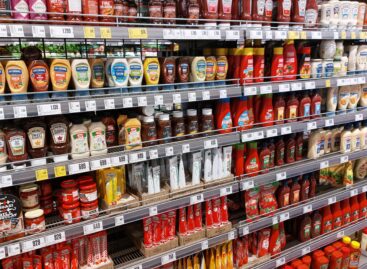UK government’s HFSS restrictions delay
The UK government has announced a one-year delay to the proposed restrictions for foods high in fat, salt or sugar. It said restrictions would be pushed back following the unprecedented global economic situation and to give industry more time to prepare.
The government’s move to implement restrictions on junk food marketing and volume-based price promotions was seen as a key to its obesity strategy and commitment to tackling health disparities. A ban on multi-buy offers for HFSS foods, including buy one get one free and three for 2 offers, will now come into force in October 2023, and a ban on advertising junk food before 9pm on television as well as online will now start in January 2024. Rules limiting the locations of unhealthy foods in shops will go ahead as planned.
The food industry welcomed the government’s pragmatism during the cost of living crisis. However, the sector was not united in its support for the delay, as some brands also called the move a backward step, as well as public health campaigners were unhappy with the delay.
A new analysis made by the Cancer Research UK claims that obese adults are set to outnumber those who are healthy within five years. Their report estimated that if current overweight and obesity trends continue, the number of UK adults who are overweight or obese may reach around 7 in 10 people, 71 % of the population. Experts urge bold action on obesity, as it is an important and preventable risk factor for cancer.
Celebrity chef Jamie Oliver has accused PM Boris Johnson of playing politics with children’s health and has called on the public to protest the „reckless U-turn” outside Downing Street.
Meanwhile, a new YouGov customer survey revealed that most Brits would not support the introduction of controls on HFSS products (mandatory health warnings or tobacco-style plain packaging). It is estimated that British shoppers currently spend some 40 % of their grocery budget on HFSS goods, 15 % of which goes to the types of products that will face the most restrictions. So the research raises an important question for policymakers: how effective will anti-obesity measures be if they are out of step with public opinion?
Meanwhile, analysts at GlobalData suggested foodservice businesses could use healthy options as a way of tackling rising prices. . Smaller portion sizes when marketed effectively can be positioned as ‘better-for-you’ because they immediately cut the calories.
Source: Foodnavigator.com
Related news
January inflation data paves the way for February interest rate cut
🎧 Hallgasd a cikket: Lejátszás Szünet Folytatás Leállítás Nyelv: Auto…
Read more >Markets facing a structural turning point in 2026
🎧 Hallgasd a cikket: Lejátszás Szünet Folytatás Leállítás Nyelv: Auto…
Read more >Related news
A colourful selection of sauces on the Easter table
🎧 Hallgasd a cikket: Lejátszás Szünet Folytatás Leállítás Nyelv: Auto…
Read more >







